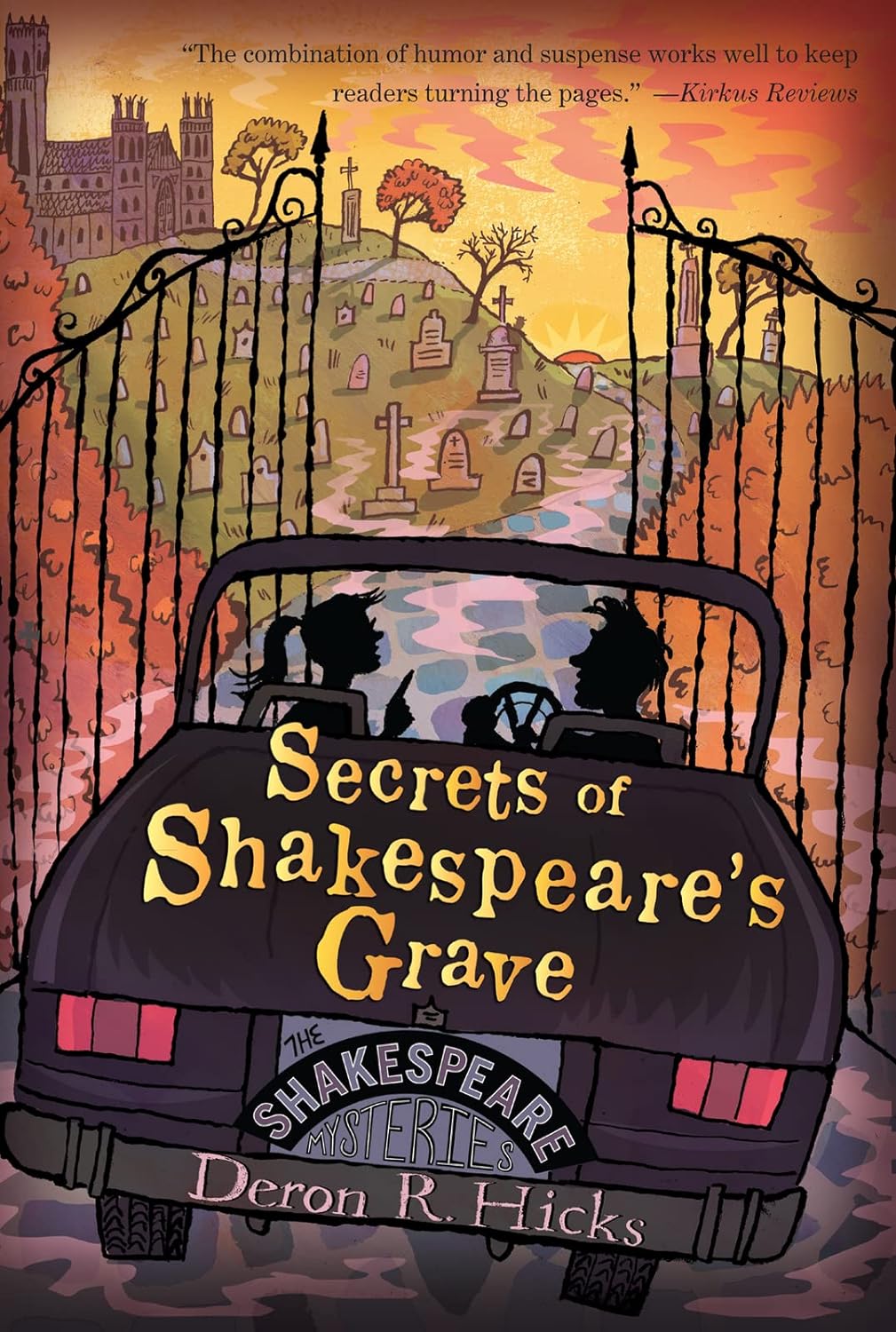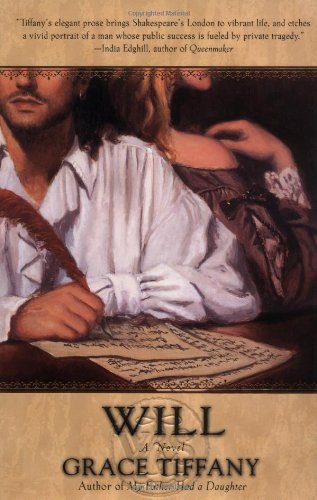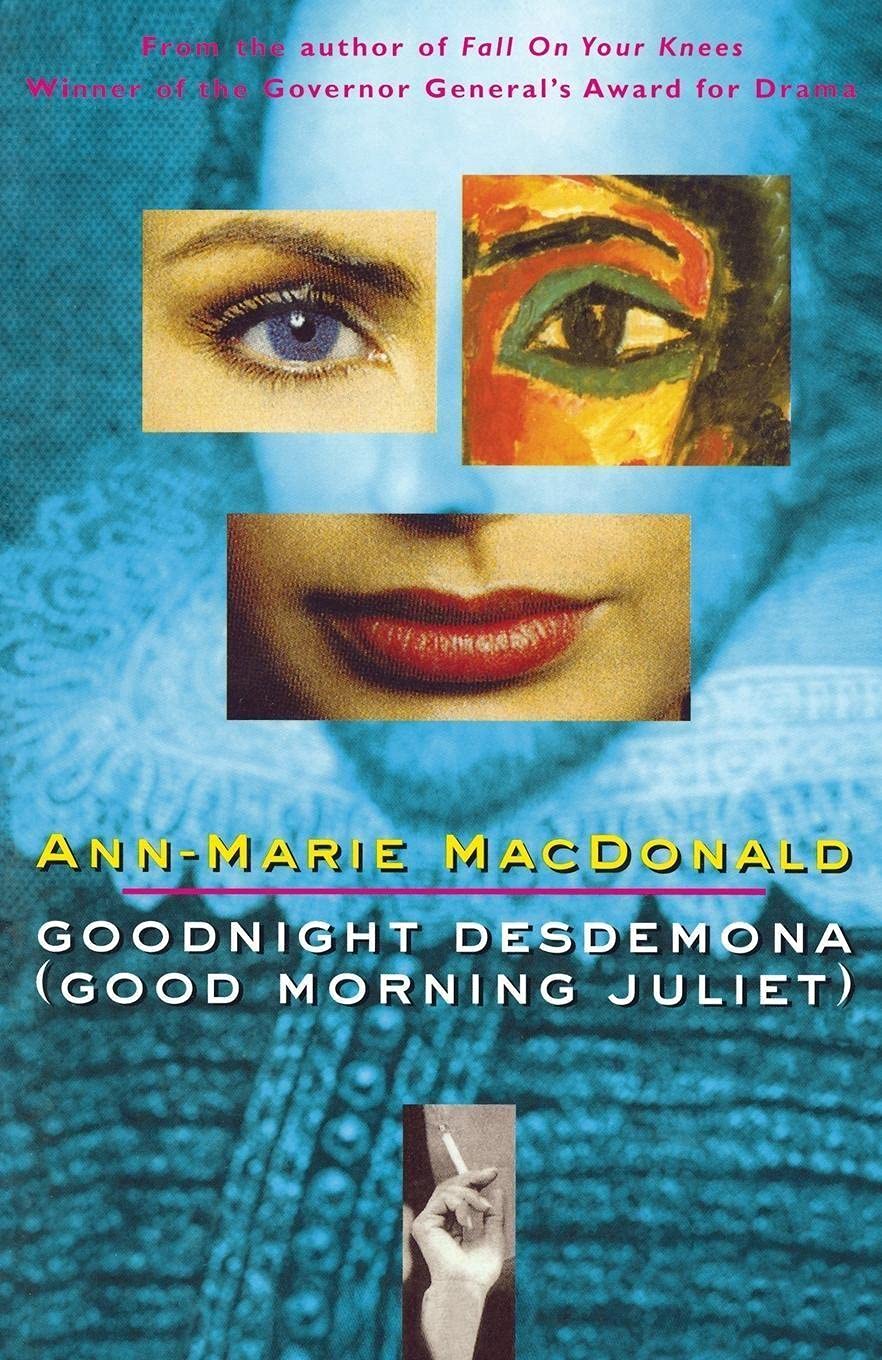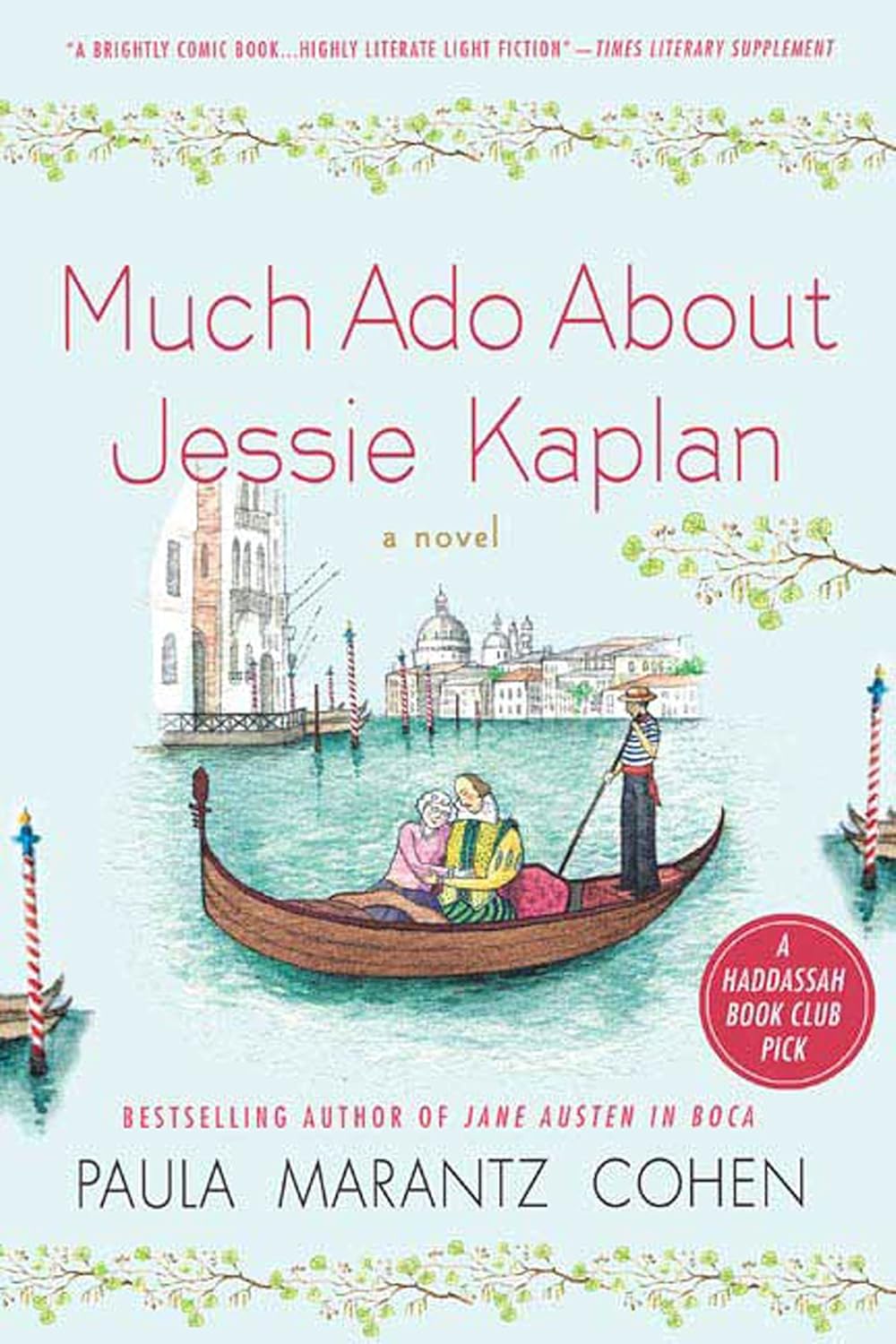Osborne, Mary Pope. Stage Fright on a Summer Night. Illus. Sal Murdocca. New York: Random House, 2002.
They always want to put Queen Elizabeth I in the Globe Theatre, nearly every single time.
I've read a few books in the
Magic Tree House series from time to time. This one is, I'm afraid, not the very best of the genre. There's not much of a plot or much of a conflict to overcome. The structure of the series becomes a thinly-veiled pretense for journeying to Elizabethan England. But it only took about fifteen minutes to read, so I don't feel that put out.
Once there, our two protagonists are exposed to the usual seamier side of the era—the stench, the bear baiting, et cetera—before they meet a man named Will who is putting on a play called
A Midsummer Night's Dream. He needs two actors to play fairies, and he snatches up the protagonists for the roles. They like this guy named Will all right, and they play their parts well.
They journey back to their own place and time, and they find this note. I'm including the full spread that includes their discovery, as it may be the most interesting part:
It's at that point that they realize that the Will they met was the William Shakespeare they they've heard of somewhere before. Not only that, but they have his signature—and a line of writing in his own hand! Naturally, they decide to leave it in the treehouse.
Since the book itself doesn't allow for much interesting speculation, I'm providing just a smidgen of my own. Perhaps Morgan has sent these uninformed children back in time to get a document worth billions of dollars, probably to fund her malicious plot to take over the world.
Click below to purchase the book from amazon.com
(and to support Bardfilm as you do so).
















.Cover.jpg)











